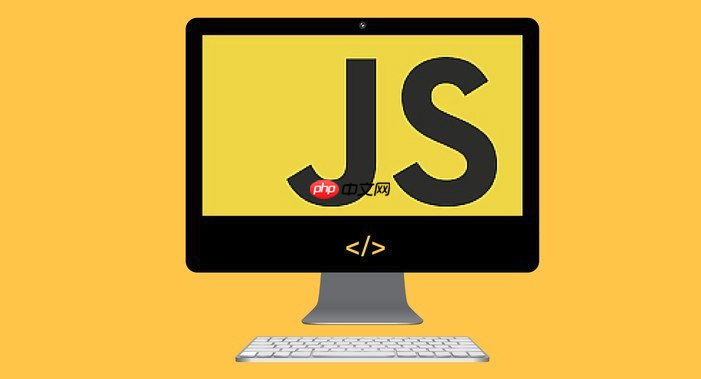实现符合Promise A+规范的Promise库需正确处理状态机、异步解析与then链式调用,核心包括:1. 定义pending、fulfilled、rejected三种不可逆状态;2. 构造函数中通过resolve/reject控制状态变更并维护回调队列;3. then方法返回新Promise,确保异步执行与错误捕获;4. 实现resolvePromise函数处理返回值x,递归解析thenable对象并防止循环引用。严格遵循规范可确保兼容性,建议使用promises-aplus-tests验证。

实现一个符合 Promise A+ 规范的 Promise 库,核心在于正确处理状态机、异步解析和 then 方法的链式调用。重点是遵循规范中对 thenable 处理、状态不可逆变更、异步执行以及错误捕获的要求。
1. 理解 Promise 的三种状态
Promise 有三个状态:
- pending:初始状态,可变为 fulfilled 或 rejected
- fulfilled:成功状态,不可再改变
- rejected:失败状态,不可再改变
状态一旦从 pending 变为 fulfilled 或 rejected,就不能再更改。构造函数中通过变量记录当前状态,并在 resolve 和 reject 函数中进行状态变更控制。
2. 实现基本结构与状态管理
定义构造函数,接收一个执行器函数(executor),内部维护状态、值和回调队列:
function MyPromise(executor) {
this.status = ‘pending’;
this.value = undefined;
this.reason = undefined;
this.onFulfilledCallbacks = [];
this.onRejectedCallbacks = [];
const resolve = (value) => {
if (this.status === ‘pending’) {
this.status = ‘fulfilled’;
this.value = value;
this.onFulfilledCallbacks.forEach(fn => fn());
}
};
const reject = (reason) => {
if (this.status === ‘pending’) {
this.status = ‘rejected’;
this.reason = reason;
this.onRejectedCallbacks.forEach(fn => fn());
}
};
try {
executor(resolve, reject);
} catch (error) {
reject(error);
}
}
3. 实现 then 方法
then 方法必须返回一个新的 Promise,支持链式调用。这是 Promise A+ 的核心要求之一。要处理 onFulfilled 和 onRejected 的可选性、异步执行、值穿透和错误传播。
MyPromise.prototype.then = function(onFulfilled, onRejected) {
onFulfilled = typeof onFulfilled === ‘function’ ? onFulfilled : val => val;
onRejected = typeof onRejected === ‘function’ ? onRejected : err => { throw err; };
const promise2 = new MyPromise((resolve, reject) => {
if (this.status === ‘fulfilled’) {
setTimeout(() => {
try {
const x = onFulfilled(this.value);
resolvePromise(promise2, x, resolve, reject);
} catch (e) {
reject(e);
}
}, 0);
}
if (this.status === ‘rejected’) {
setTimeout(() => {
try {
const x = onRejected(this.reason);
resolvePromise(promise2, x, resolve, reject);
} catch (e) {
reject(e);
}
}, 0);
}
if (this.status === ‘pending’) {
this.onFulfilledCallbacks.push(() => {
setTimeout(() => {
try {
const x = onFulfilled(this.value);
resolvePromise(promise2, x, resolve, reject);
} catch (e) {
reject(e);
}
}, 0);
});
this.onRejectedCallbacks.push(() => {
setTimeout(() => {
try {
const x = onRejected(this.reason);
resolvePromise(promise2, x, resolve, reject);
} catch (e) {
reject(e);
}
}, 0);
});
}
});
return promise2;
};
4. 实现 resolvePromise 辅助函数
这个函数用于处理 then 回调返回值 x 的情况,判断是否为 Promise 或 thenable 对象,决定如何解析并 resolve 或 reject 新的 Promise。
function resolvePromise(promise2, x, resolve, reject) {
if (promise2 === x) {
return reject(new TypeError(‘Chaining cycle detected’));
}
if (x instanceof MyPromise) {
x.then(y => {
resolvePromise(promise2, y, resolve, reject);
}, reject);
} else if (x !== null && (typeof x === ‘object’ || typeof x === ‘function’)) {
let then;
try {
then = x.then;
} catch (e) {
return reject(e);
}
if (typeof then === ‘function’) {
let called = false;
try {
then.call(x, y => {
if (called) return;
called = true;
resolvePromise(promise2, y, resolve, reject);
}, r => {
if (called) return;
called = true;
reject(r);
});
} catch (e) {
if (called) return;
called = true;
reject(e);
}
} else {
resolve(x);
}
} else {
resolve(x);
} }
基本上就这些。只要严格按照 Promise A+ 规范实现 then 方法的处理逻辑,特别是 resolvePromise 中对循环引用、thenable 对象的递归解析,就能写出一个合规的 Promise 库。测试时建议使用 promises-aplus-tests 工具验证是否完全符合规范。
工具 ai Object NULL if foreach 构造函数 try throw catch Error const 递归 循环 undefined function 对象 typeof this promise 异步 prototype


